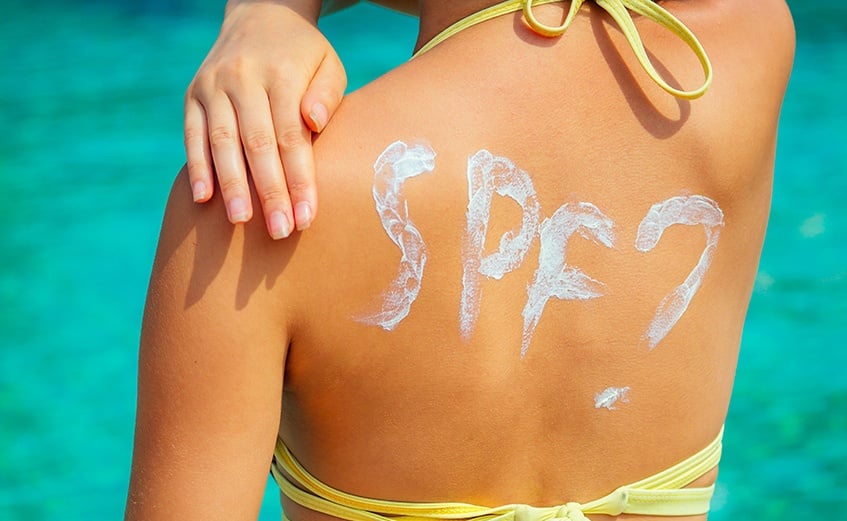
Even though summer is halfway over, August is Summer Sun Safety Month. Which means there is still time to be conscious about practicing sun safety. One major way you can do this is by slathering on some sunscreen.
Choosing a sunscreen can be a daunting task. With so many combinations of numbers and specializations (SPF what?), it’s no wonder a lot of people skip wearing sunscreen altogether. To clear up some of the confusion, let’s talk more about what SPF is as well as its importance when using the right sunscreen for your skin.
What is SPF?
SPF stands for sun protection factor.
That number you see behind it on the bottle? That’s a relative measure of how long the UV rays of the sun would take to redden (burn) your skin with sunscreen versus how long it would take without. So, for example, if you wore an SPF 30 sunscreen (as directed), it would take you 30 times longer to burn than if you weren’t wearing any sunscreen at all.
Is SPF Enough?
It depends. An important thing to understand is that the sun produces two types of ultraviolet rays that affect the skin: UVA and UVB. These rays can cause premature aging and increase your risk of developing skin cancer. Most skin cancers are caused by exposure to UVB rays, while UVA rays are known to play a major part in skin aging and wrinkling.
You may be wondering what this has to do with SPF. Well, the thing about SPF is that it only measures UVB protection, which is great if your main concern is reducing your risk of skin cancer. However, if you’re also concerned about premature aging, it’s important that you look for a sunscreen that states “broad spectrum” on the label. A broad-spectrum sunscreen provides both UVA and UVB ray protection.
SPF Numbers: Is Higher Better?
The American Academy of Dermatology recommends using a sunscreen that is SPF 30 or higher. Keep in mind, however, that although higher SPFs do mean more protection, the difference in that protection becomes smaller.
- SPF 15 = 93% UVB protection
- SPF 30 = 97% UVB protection
- SPF 50 = 98% UVB protection
- SPF 100 = 99% UVB protection
The FDA requires any sunscreen SPF 15 or lower carry a warning label stating that it only protects against sunburn, not skin cancer or skin aging.
No sunscreen can filter out 100% of the sun’s UVB rays. This is why it’s a good idea to include other sun safety practices, such as seeking shade, wearing protective clothing, and staying indoors from 10 am to 4 pm when UV rays from the Virginia sun are the strongest.
Slather and Repeat
Apply your sunscreen 20 minutes before going outside. To ensure continued protection, reapply every 90 minutes to two hours. If you will be actively sweating or in the water, be sure to find a sunscreen that is also water resistant and reapply each time you get out of the water.
Pay attention to all areas of bare skin, including your neck, face, ears, legs, and tops of your feet. For your lips, choose a lip balm that’s at least SPF 15 and reapply it frequently throughout the day. For more information on protecting your skin from both sunburns and skin cancer, visit our blog on common sunscreen mistakes.
In many cases, people who get sunburned don’t use enough sunscreen, don’t reapply it, or use a product that is past its expiration date. Remember, your skin is exposed to UV rays every time you go outside – even on cloudy days, on the snow, and in the water – so practice sun safety by slathering on some broad-spectrum, SPF sunscreen.






